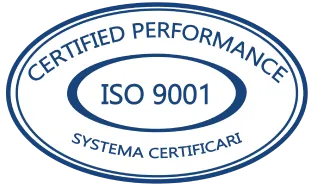Get more out of Salesforce with our custom automation and integration services. We help you connect Salesforce with your favorite tools — from Gmail and Slack to Google Sheets, ERP systems, and project management platforms — and automate repetitive CRM tasks to boost efficiency across your teams.
Our Salesforce Automation Services Include:
- Lead capture, scoring, and assignment automation
- Syncing Salesforce with Gmail, Outlook, Slack, and HubSpot
- Creating deals, tasks, or follow-ups based on form submissions or email triggers
- Auto-updating opportunity stages and pipeline progress
- Generating reports or alerts for new leads and closed deals
- Connecting Salesforce with ERP, billing, or marketing systems via Make.com or Zapier
- Managing multi-step sales workflows and client onboarding sequences
- Cleaning and enriching CRM data automatically
… and more powerful solutions to help your team work smarter — not harder.

Salesforce is practically the Champions League of CRMs. In addition to being extremely comprehensive, the software is also widely used. Medium-sized and large companies in particular benefit from the extensive options and functions. So it's no wonder that entire agencies have specialized in consulting and implementing Salesforce. Salesforce's functions cover everything you can imagine from a CRM. And yet Salesforce also benefits from further integration with other applications and software.


Industry Expertise
With years of experience, our team possesses the knowledge and skills necessary to deliver high-quality, efficient solutions.

Custom Solutions
We understand that each business is unique. That's why we offer customized integration services tailored to meet your specific requirements.

Proven Results
Our portfolio of successful integrations speaks for itself. Check out our case studies and client testimonials to see the impact of our work.

Reliable Help
We're with you every step of the way. From initial consultation to post-integration support, our team is dedicated to ensuring your success.

FAQ
- What can I automate in Salesforce?
You can automate lead assignments, task creation, email notifications, pipeline updates, data syncing across platforms, and even client onboarding workflows — all customized to your sales cycle.
- Is automation safe for sensitive CRM data?
Yes. We follow best practices for data security and only use secure, encrypted connections through OAuth. We also ensure that your workflows respect access permissions and privacy policies.
- How do I know what to automate in Salesforce?
We’ll help you map your current workflows and identify where you’re losing time or making repetitive manual updates. Then we turn those steps into smart automations that are reliable, scalable, and measurable.










%2520(1).webp)







.svg.webp)


.webp)


















.png)
.png)



.avif)
